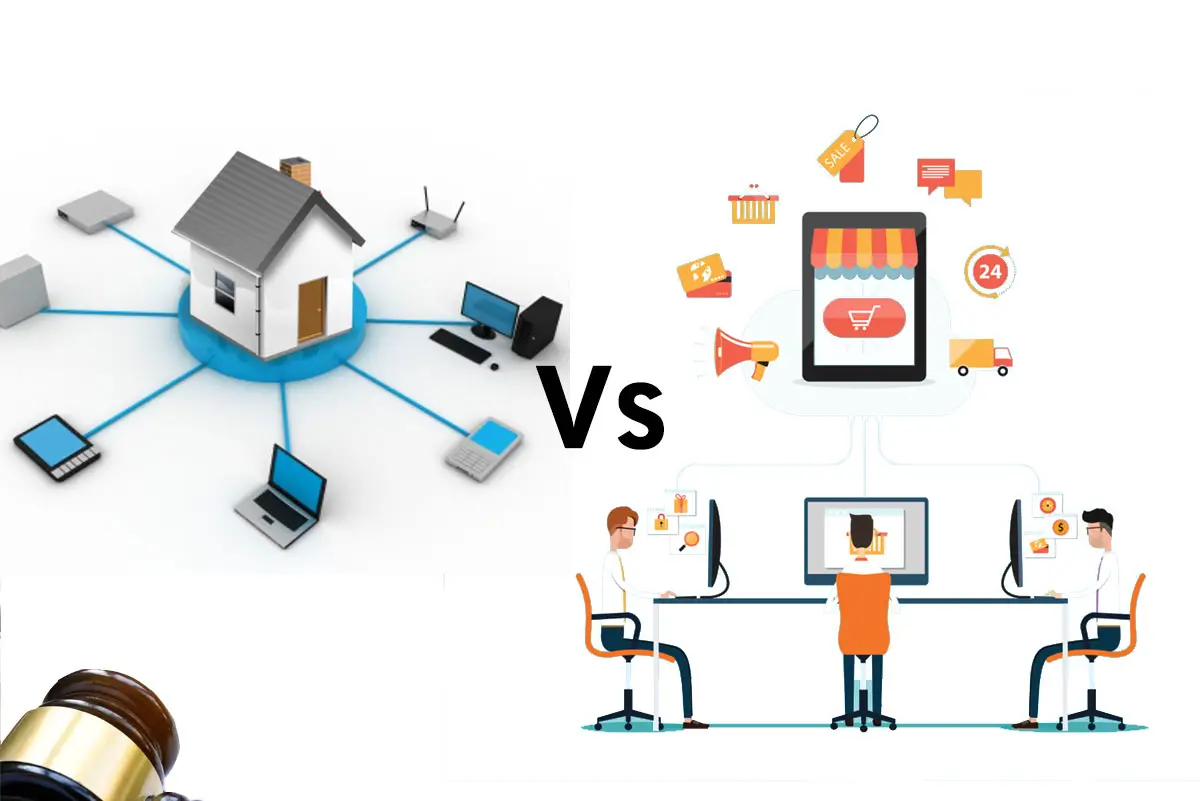The internet has become an essential part of our lives, and it’s not just limited to personal use. With more and more people working remotely, businesses also rely on the internet for their day-to-day operations.
However, the needs of a business internet user are vastly different from those of a home internet user.
In this article, we’ll take a closer look at the differences between business internet and home internet and help you decide which one is right for you.
Understanding Business Internet
Business internet is designed specifically for companies and organizations that require high-speed, reliable internet access.
Unlike home internet, which is usually shared among several people in a household, business internet is typically used by multiple employees at the same time.
Bandwidth Requirements
One of the most significant differences between business and home internet is bandwidth requirements. Businesses typically require more bandwidth than homes because they have more users and devices connected to the internet simultaneously.
In addition, business internet needs to handle high traffic volumes, especially if the company relies on online applications or video conferencing.
Service Level Agreements (SLAs)
Another essential feature of business internet is the Service Level Agreement (SLA). An SLA is a contract between the business and the internet service provider (ISP) that guarantees a certain level of service.
This includes guarantees for uptime, latency, and other performance metrics. SLAs are crucial for businesses that rely on the internet for critical operations because they provide a level of protection in case of service interruptions or downtime.
Security Features
Business internet also includes additional security features to protect company data and networks. This includes firewalls, intrusion detection systems, and other security measures to prevent unauthorized access or data breaches.
Understanding Home Internet
Home internet, on the other hand, is designed for personal use and is typically less expensive than business internet. Home internet plans are usually designed for a single user or a small household and come with lower bandwidth limits.
Bandwidth Requirements
Most home internet plans come with lower bandwidth limits because they’re designed for individual use. This means that if multiple people in a household are using the internet simultaneously, it can lead to slower speeds and buffering issues.
Service Level Agreements (SLAs)
Unlike business internet, home internet plans do not typically come with an SLA. This means that if there is an outage or service interruption, there’s no guarantee for a quick resolution.
Security Features
Home internet plans do not typically include the same level of security features as business internet plans. However, most ISPs offer basic security features like antivirus software and spam filters.
Which One is Right for You?
Deciding between business and home internet ultimately comes down to your needs. If you’re a business owner or part of a larger organization, business internet is likely the better option. It offers higher bandwidth limits, better SLAs, and enhanced security features. However,
if you’re a casual internet user, home internet may be sufficient for your needs.
When choosing between the two, it’s important to consider your usage patterns and the number of users who will be accessing the internet simultaneously.
If you’re a business owner or part of a larger organization, it’s also important to consider your budget and the level of service required to meet your operational needs.
Here the list of US Best Landline Phone Service for Small Business
Conclusion – Business Internet Vs. Home Internet
In conclusion, business internet and home internet have distinct differences in terms of bandwidth requirements, SLAs, and security features. Understanding these differences is critical when deciding which one is right for you.
By considering your usage patterns and the number of users who will be accessing the internet simultaneously, you can make an informed decision that meets your needs.

